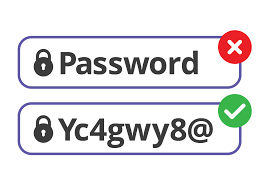With the rise of technology and the digital age, the protection of personal data has become a paramount concern. In response to this, the General Data Protection Regulation (GDPR) was introduced in 2018 by the European Union (EU) to enhance data privacy and security for individuals within the EU. This landmark legislation has had a significant impact not only in Europe but also around the world.
What is GDPR?
The GDPR is a set of regulations that govern the collection, processing, storage, and transfer of personal data. It applies to all organizations that handle the personal data of individuals residing in the EU, regardless of where the organization is located. The regulation aims to give individuals greater control over their personal data and requires organizations to be more transparent about how they use and protect that data.
Enhanced Data Protection
One of the key aspects of the GDPR is the emphasis on enhanced data protection. Organizations are required to implement appropriate technical and organizational measures to ensure the security of personal data. This includes measures such as encryption, access controls, and regular data backups. By implementing these measures, organizations can minimize the risk of data breaches and unauthorized access to personal data.
Consent and Transparency
Under the GDPR, organizations must obtain explicit consent from individuals before collecting and processing their personal data. This means that individuals have the right to know what data is being collected, why it is being collected, and how it will be used. Organizations must also provide individuals with the option to withdraw their consent at any time. This increased transparency gives individuals greater control over their personal data and helps build trust between organizations and their customers.
Individual Rights
The GDPR grants individuals several rights concerning their personal data. These rights include the right to access their data, the right to rectify any inaccuracies, the right to erasure (also known as the “right to be forgotten”), and the right to data portability. These rights empower individuals to have more control over their personal data and ensure that organizations handle their data responsibly.
Impact on Global Data Privacy
Although the GDPR is an EU regulation, its impact extends far beyond European borders. Many countries around the world have adopted similar data protection laws inspired by the GDPR. This global shift towards stronger data privacy regulations reflects the growing recognition of the importance of protecting personal data in the digital age.
Increased Accountability and Penalties
The GDPR places a greater emphasis on accountability for organizations that handle personal data. Organizations are required to maintain detailed records of their data processing activities and conduct regular data protection impact assessments. Failure to comply with the GDPR can result in significant penalties, including fines of up to 4% of annual global turnover or €20 million, whichever is higher. These penalties serve as a powerful deterrent and encourage organizations to take data privacy and security seriously.
Conclusion
The GDPR has had a profound impact on data privacy and security. It has raised awareness about the importance of protecting personal data and has given individuals greater control over their own information. By implementing stricter regulations and holding organizations accountable, the GDPR has paved the way for a more secure and privacy-focused digital landscape.









